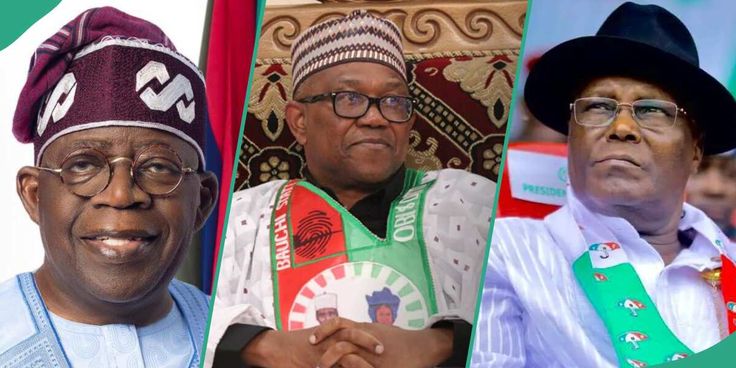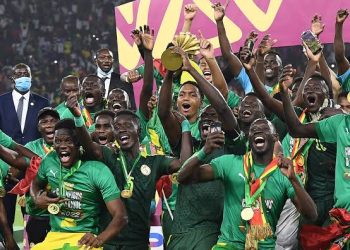2027 election looks promising already, as Nigeria’s political landscape takes a dramatic turn with top politicians across the country repositioning and restrategizing ahead of the polls. What was once seen as a fragmented opposition is now taking the shape of a formidable political force, with prominent figures from multiple parties aligning under the African Democratic Congress (ADC) to challenge the ruling APC and President Bola Ahmed Tinubu.
The former Vice President of Nigeria, Atiku Abubakar, has officially left the People’s Democratic Party (PDP) and joined hands with a host of other influential political figures in what is already being described as one of the most ambitious opposition coalitions in Nigeria’s democratic history.
A Coalition of Heavyweights
Among the notable figures who have now pitched their tents with the ADC include former Labour Party presidential candidate Mr. Peter Obi, former Kaduna State Governor Nasir El-Rufai, former Rivers State Governor Rotimi Amaechi, former PDP National Chairman Uche Secondus, former Senate President David Mark, former Osun State Governor Rauf Aregbesola, former Attorney General Abubakar Malami, journalist and media mogul Dele Momodu, former Kogi Senator Dino Melaye, and former Imo Deputy Governor Emeka Ihedioha, among others.
These political actors, who previously belonged to rival parties including the PDP, APC, LP, SDP, and others, have now united under the ADC umbrella in what they described as a patriotic effort to save Nigeria from “economic stagnation, insecurity, and leadership failure.”
The ADC: Now the Face of the Opposition?
The sudden and surprising realignment was announced at a major political event held at the Shehu Musa Yar’Adua Centre in Abuja. In a symbolic move to welcome the new political heavyweights, the entire national leadership of the ADC stepped down to allow for a transitional structure that would accommodate the coalition members.
David Mark has been announced as the interim national chairman of the party, while Rauf Aregbesola was appointed interim national secretary. Former Minister of Youth and Sports, Bolaji Abdullahi, was named as the coalition’s spokesperson.
The party founder, Dr. Ralph Nwosu, emphasized the importance of the moment, stating that the ADC was proud to serve as the vehicle for a united opposition and “a reset for Nigeria’s future.”
Strategic Repositioning for 2027
This sweeping political maneuver has been described as part of a larger “re-strategizing” process by the opposition. While some of the actors such as Peter Obi have not confirmed whether they will contest in 2027, their presence in the coalition signals a renewed commitment to real political change.
Inside sources suggest that high-level meetings have been ongoing for months to unite major opposition voices in one party. By choosing the ADC a registered and less controversial platform they’ve avoided the usual internal power struggles that come with larger parties like the PDP and APC.
The coalition is expected to present a joint presidential ticket, which will likely be a product of consensus. Although the final candidates are yet to be unveiled, observers believe the alliance is strategically positioning itself for grassroots mobilization, voter registration campaigns, and policy rollouts ahead of the 2027 elections.
Mixed Reactions and Internal Dissent
While the political alliance has received praise from various stakeholders and civil society groups, not everyone is on board. A faction within the ADC has criticized what they called a “hijack” of the party structure by elite political actors. However, coalition leaders have promised to work with all members to ensure inclusiveness and stability.
There are also questions about how the coalition will manage the ambitions of its top figures, many of whom have either contested for the presidency in the past or held powerful political positions. Political analysts warn that personal interests, if not checked, could once again derail what many Nigerians hope will be a real and effective alternative to the APC.
What Lies Ahead?
The unveiling of this grand opposition coalition marks a pivotal moment in Nigeria’s journey toward the 2027 general election. For the first time since 2015, a unified opposition seems not only possible but increasingly likely to mount a serious challenge to the ruling government.
The coming months will be critical. Nigerians will be watching to see how the coalition transforms from a collection of political titans into a functioning, people-centered political machine capable of winning votes and delivering real governance solutions.
If they succeed, the ADC could move from a fringe party to a dominant force in the country’s democratic space. But to do that, they will need not just unity at the top, but massive grassroots mobilization and a clear, compelling vision for the country.






















































